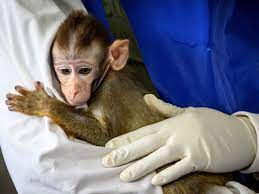Rhesus Macaques : Recent Study

A recent study conducted by researchers from Imperial College London, titled “Genetics, Social Environment and Evolution of Male Same-Sex Behavior in Rhesus Macaques,” has challenged conventional beliefs about same-sex behaviour (SSB) in animals.
- The engagement of animals in SSB has been considered a ‘Darwinian paradox’: if reproduction is critical to evolution, then SSB – which is non-reproductive – should have ceased to exist.
- This recent study found that male SSB in rhesus macaques is very common and doesn’t harm evolution.
Key Findings from the Study:
- The study focuses on male same-sex mounting behaviour observed in rhesus macaques, a common monkey model, in Cayo Santiago, an island east of Puerto Rico.
- 72% of observed male rhesus macaques engaged in same-sex mounting.
- Only 46% participated in different-sex mounting.
- It challenges the notion that SSB contradicts principles of evolution due to its non-reproductive nature.
- The study considers external factors like social interactions and the environment.
- These non-genetic elements contribute to the expression of SSB behaviour in male rhesus macaques.
- SSB-engaging monkeys form coalitions against common enemies.
- Male SSB could serve as a form of emotional communication and regulation.
- The study disputes the assumption that SSB reduces reproductive opportunities, as sexually active males engage in both SSB and different-sex sexual behaviour (DSB).
- There is no direct correlation between SSB engagement and reduced offspring count in the macaque population.




